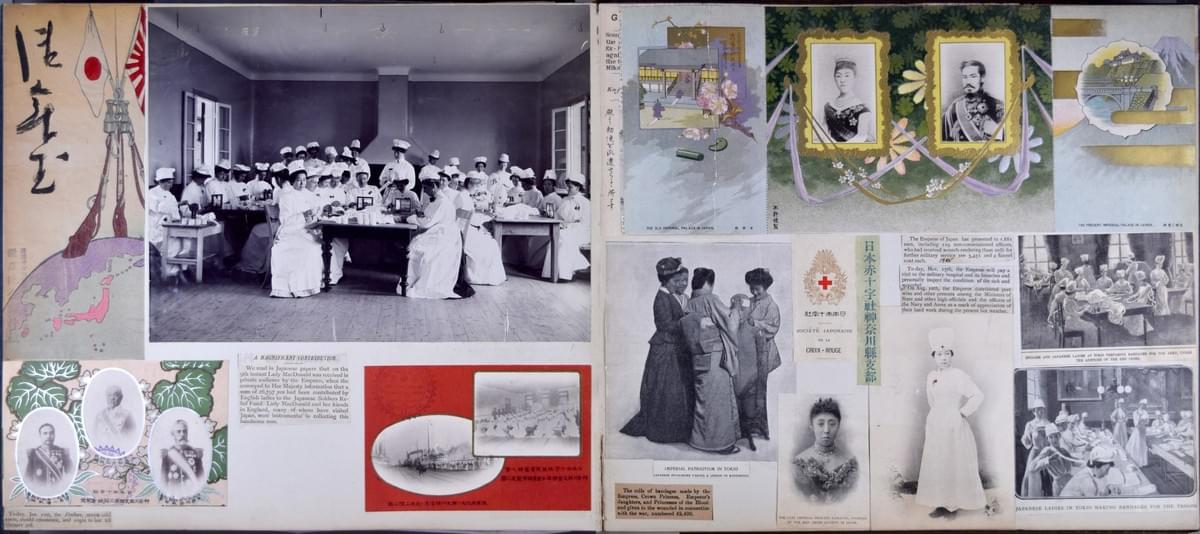Amongst the many treasures at Toronto's Royal Ontario Museum, is a little a known orihon scrapbook that began to be compiled in 1904 by Canadian author, educator and traveler, Margaret MacLean while she lived in Yokohama, Japan. This orihon's artistic, cultural, educational and historical merits are many.

It acts as a window into a transformative era of critical importance in Japanese history, during and following the Russo-Japanese War. The story is told through the interweaving of two art forms: traditional Japanese orihon book binding (used for the preservation of scroll paintings and calligraphy), and the North American art of scrapbooking, in this case with hundreds of photographs and other visual media. The MacLean Orihon emerges while the photo album itself is undergoing a radical transformation from a repository of stiff studio portraits into an expressive stage for snapshot photographs.

Complimenting its focus on the Russo-Japanese War of 1904-5, The MacLean Orihon includes hundreds of Yokohama Shashin prints, picture postcards, woodblock prints and other ephemera to image the life of Japanese people in the later decades of the Meiji Period. The MacLean Orihon is further enriched with personal correspondence, formal invitations, official photographs, and articles MacLean herself wrote for the Canadian press. They reveal insights into MacLean's editorial intent when she does not explicitly write one.

In regards to photographic history, The MacLean Orihon's hundreds of photographic postcards represent a decisive shift in photographic aesthetics in Japan. As a whole, they showcase a pictorial style different from the souvenir photographs of the 1870s to 1890s that were aimed at the tourist and export markets. The popularity of early 1900s photo postcards created great opportunities for Japanese photographers and publishers who catering to local audiences. Through its diversity of photographic media, The MacLean Orihon captures the gradual emancipation of Japanese photography from foreigner control in the Meiji Period, paralleling that country's transformation into a global power.